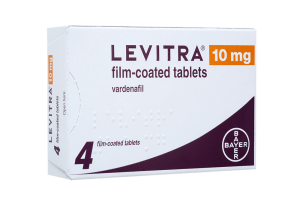
These days the subject of generic medications troubles many “anxious about our health
government minds ”. Generic drugs are unsafe, not helpful as brand names for your
diseases , they are made in unautorised facilities etc . Is this the truth or is it just an
attempt to favour some american drug manufacturers and pharmacies.
Drug products sold in the United States are approved by the FDA whether they are brand
name or generic.
"Most people believe that if something costs more, it has to be better
quality. In the case of generic drugs, this is not true," says Gary Buehler, Director of
FDA's Office of Generic Drugs. "The standards for quality are the same for brand name
and generic products."
Health professionals and consumers can be assured that FDA approved generic drugs
have met the same rigid standards as the innovator drug. To gain FDA approval, a
generic drug must:
· contain the same active ingredients as the innovator drug (inactive ingredients
may vary)
· be identical in strength, dosage form, and route of administration
· have the same use indications
· be bioequivalent
· meet the same batch requirements for identity, strength, purity, and quality
be manufactured under the same strict standards of FDA's good manufacturing practice
regulations required for innovator products.
So we can make the conclusion that: The Generic Drug is a drug which is bioequivalent
to a brand name drug with respect to pharmacokinetic and pharmacodynamic properties.
Generic medicines must contain the same active ingredient at the same strength as the
"innovator" brand, be bioequivalent, and are required to meet the same pharmacopoeial
requirements for the preparation. By extension, therefore, generics are identical in dose,
strength, route of administration, safety, efficacy, and intended use.
Thus, in some cases, the "generic" product is actually the brand product but inside a
different box.
The principal reason for the reduced cost of generic medicines is that these are
manufacturered by smaller pharmaceutical companies which do not invest in research
and development into new drugs. The significant research and development costs
incurred by the large pharmaceutical companies in bringing a new drug to the market is
often cited as the reason for the high cost of new agents - they wish to recover these costs
before the patent expires.Other reason for high prices is that every year pharmaceutical
companies spend billions to market their products .
When a pharmaceutical company first EDジェネリックランキング markets a drug, it is usually under a patent that
only allows the pharmaceutical company that developed the drug to sell it. This allows
the company to recoup the cost of developing that particular drug. It will frequently cost
millions of dollars to develop and test a new drug before it is approved for use. After the
patent on a drug expires, any pharmaceutical company can manufacture and sell that
drug. Since the drug has already been tested and approved, the cost of simply
manufacturing the drug will be a fraction of the original cost of testing and developing
that particular drug.
So despite the strict standards imposed by the FDA for approval of generic drugs, and
their enforcement of these standards, a number of misconceptions about generic drugs
persist that we must disprove:
© Copyright Interxarxesblog
Make a free website with Yola